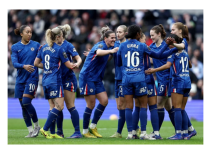Nigeria’s association with the Miss Universe pageant began in the early 1980s with an independent Miss Universe Nigeria competition.
The inaugural winner, Omololu Ojehomon (1983/84), was ultimately dethroned before her international appearance, amid controversy over dual runners-up and biased judging.
Three years later, the Silverbird Group revitalized the journey by introducing the Most Beautiful Girl in Nigeria (MBGN) pageant. From that point, MBGN winners went on to represent the country in global competitions. In 1986, Lynda Chuba-Ikpeazu marked Nigeria’s official return to Miss Universe.
Over decades, Nigeria experienced sporadic success: Agbani Darego broke into the Top 10 at Miss Universe 2001 and later won Miss World—highlighting both talent and possibility. The country would see further placements—a Top 20 finish in 2019 and a Best National Costume win in 2021—but not a full resurgence.
In 2023, in response to evolving Miss Universe rules that required a singular national winner, Silverbird spun off a standalone Miss Universe Nigeria (MUN) pageant—openly inclusive, embracing all body types, marital statuses, and ethnic backgrounds.
Theme Across Time: Triumphs, Trailblazers & Trends
| Year | Notable Hit | Insight |
|---|---|---|
| 2001 | Agbani Darego avoids becoming a footnote by winning Miss World after placing Top 10 at Miss Universe. | Significance of global impact rooted in local excellence. |
| 2013 | Stephanie Okwu (Imo State) becomes MBGN Universe, competing internationally in Russia. | Adds cultural and regional diversity to Nigeria’s representation. |
| 2024 | Chidimma Adetshina, a Nigerian-South African law student, wins MUN, then makes history as Miss Universe first runner-up, earning Miss Universe Africa & Oceania. | A breakthrough moment that rewrote Nigeria’s pageant narrative. |
































